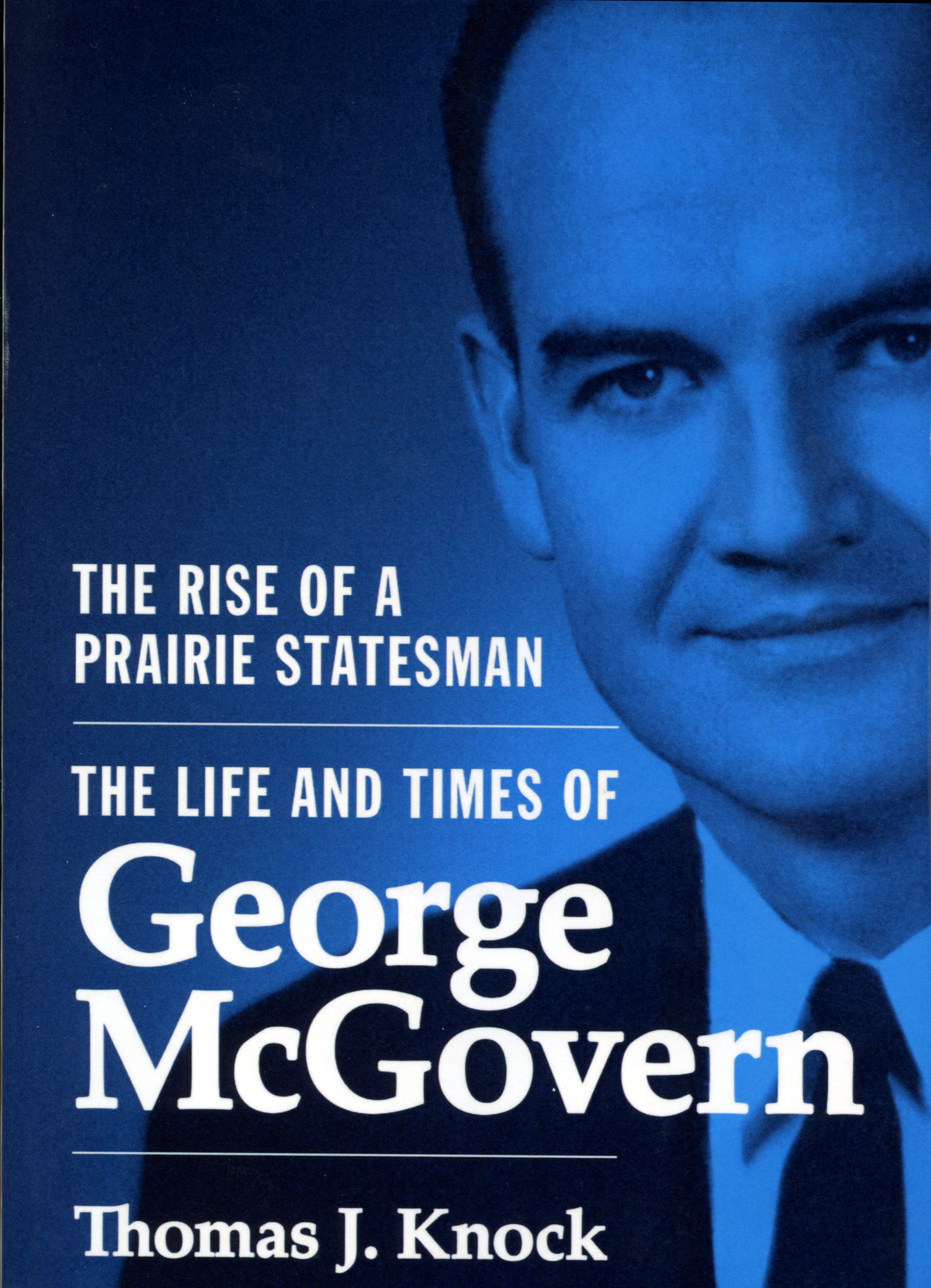SMU history professor explores impact of senator, Vietnam War critic George McGovern in new biography
History Prof. Thomas Knock has written a new biography on 1972 presidential hopeful George McGovern.


Knock will discuss The Rise of a Prairie Statesman: The Life and Times of George McGovern (Princeton University Press) at 6 p.m. Wednesday, Feb. 17, in SMU’s McCord Auditorium in room 306 of Dallas Hall, 3225 University Blvd. The event is free, open to the public, and is sponsored by SMU’s Center for Presidential History and the George W. Bush Library and Museum. Registration is requested at http://blog.smu.edu/cph/events/the-life-and-times-of-george-mcgovern/.
It’s fitting that Knock’s book is being released in the heat of the American presidential primary season. After the disastrous 1968 Democratic Convention in Chicago, where police and anti-war protesters fought on the streets of Chicago, it was then-U.S. Sen. McGovern who chaired a commission that increased the role of Democratic primaries and caucuses and reduced the power of party bosses to select the presidential nominee. The GOP would eventually adopt the same approach, leading to the presidential horse race that now begins every four years at the Iowa caucuses.
Would McGovern be dismayed at the sometimes chaotic, all-consuming primary process that has evolved? Absolutely not, says Knock.
“Welcome to democracy,” Knock deadpanned. “It’s not pretty.”
 Thomas Knock |
Knock’s book is grounded in well over 100 oral history interviews, including 23 personal sessions with McGovern that began in the 1990s (McGovern died in 2012 at the age of 90.) It thoroughly examines the factors that shaped his view of the world – his boyhood in a prairie town during the Great Depression, his religious father, his World War II experiences as a B-24 bomber pilot and his love of history. While history may define him by his opposition to America’s role in Vietnam, Knock says McGovern was no pacifist.
McGovern started warning the American people about the dire consequences of U.S. involvement in Vietnam as early as the Kennedy administration, Knock stresses, and was among the very first to do so.
This first volume ends in 1968, shortly after the divisive Chicago convention and McGovern’s re-election to the Senate. The next volume will pick up with the volatile years leading up to McGovern’s ill-fated race for president as the Democratic nominee against Republican Richard Nixon in 1972.
“Whereas his (1972 presidential) candidacy owed to his opposition to the Vietnam War, his position constituted an all-embracing rethinking of American Internationalism – a treatise on the original notion of the ‘American Century’ itself,” Knock writes in the book’s prologue. “Unlike any other Democratic presidential aspirant before or since, McGovern actually asked his fellow citizens to think critically about their country – in particular, about American military and economic interventionism in the Third World in the name of anticommunism and about the amassing of a nuclear arsenal of such size as to threaten human existence.”
Knock is Altshuler Distinguished Teaching Professor at SMU in the Clements Department of History in Dedman College of Science and Humanities. He is the author of the prize-winning To End All Wars: Woodrow Wilson and the Quest for a New World Order (Oxford University Press) and the coauthor of The Crisis of American Foreign Policy: Wilsonianism in the Twenty-first Century (Princeton University Press).
###